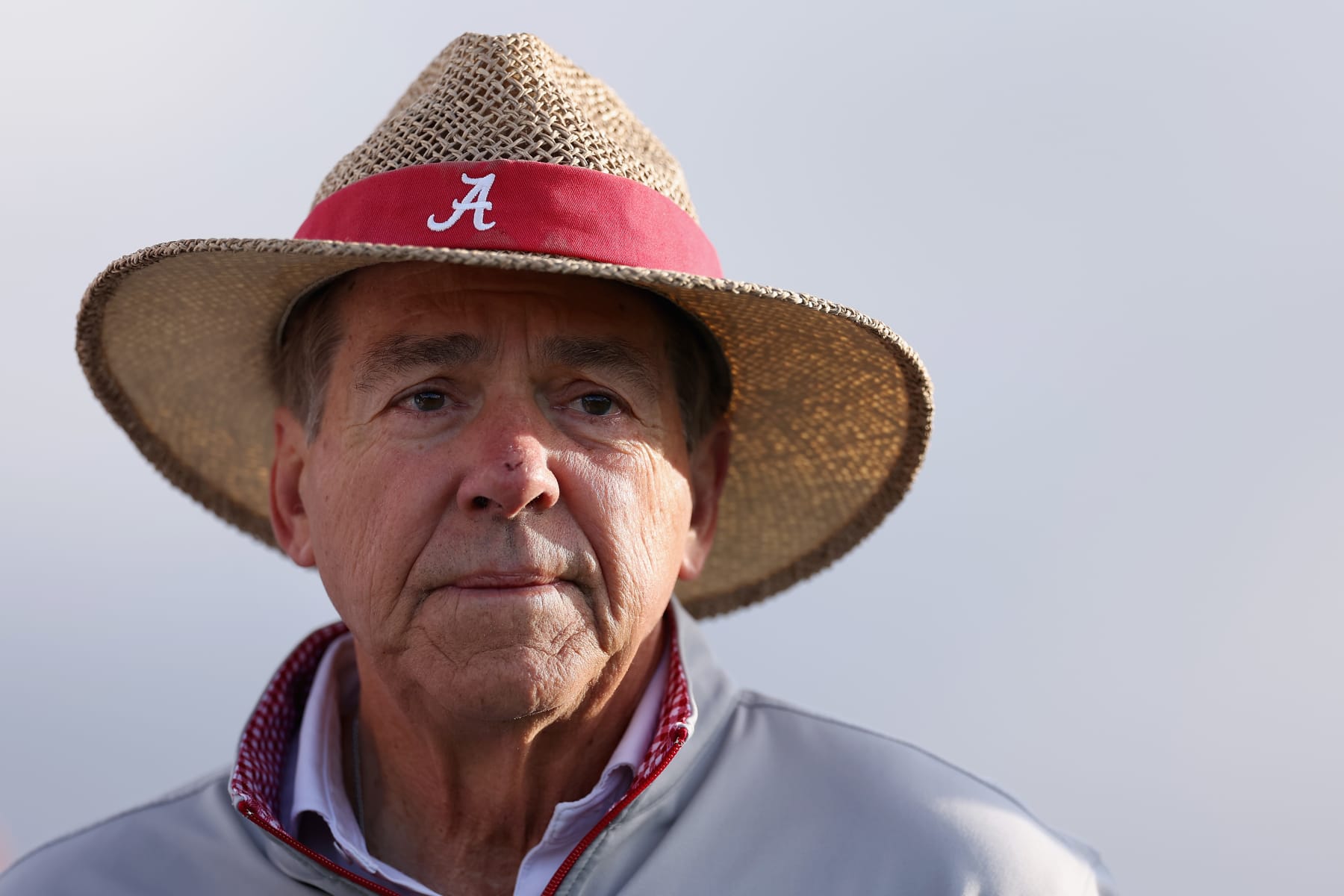
Nick Saban Talks NIL, Says What He Believed About College Sports 'No Longer Exists'
Former Alabama head football coach Nick Saban believes NIL rules have been a detriment to college sports, and he let his feelings be known during a Capitol Hill roundtable.
"All the things that I believed in, for all these years, 50 years of coaching, no longer exist in college athletics," Saban said. "It was always about developing players, it was always about helping people be more successful in life."



Saban told a story about a recruiting breakfast hosted at his home that ended with his wife, Terry, questioning why they were still doing this.
"She said, 'All they care about is how much you're gonna pay them, they don't care about how much you're gonna develop them, which is what we've always done, so why are we doing this?'" Saban explained.
The discussion was hosted by Sen. Ted Cruz (R-Texas). Other participants included Saban's former boss, Alabama athletic director Greg Byrne, ACC commissioner Jim Phillips and student-athletes Haley and Hanna Cavinder. Haley is planning to return to college basketball next season with TCU.
Saban stepped down as Alabama head coach in January after leading the team to six national championships in 17 seasons.
The 72-year-old went on to advocate for a revenue-sharing model that would benefit student-athletes while also creating a better competitive balance.
"If we had some sort of revenue sharing proposition that did not make student-athletes employees ... I think that may be the long-term solution," Saban said. "You could create a better quality of life for student-athletes, you could still emphasize development, you can still create brand and athletic development with a system like that and it would be equal in all institutions. You couldn't raise more money at one school to create a competitive advantage at another."









